
Wagner’s “Rienzi” Overture
This is Part 7 of our series “Opening Day of the World’s Fair,” which explores the events of May 1, 1893, at the World’s Columbian Exposition in Chicago. The full series can be found here.
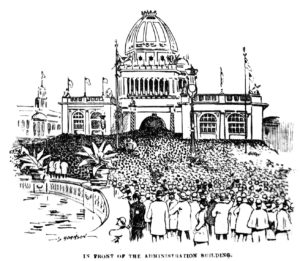
“In Front of the Administration Building” from the Chicago Herald, May 1, 1893.
Few among the quarter of a million spectators gathered around the east side of the Administration Building could hear anything coming from the grandstand, or even see much of the program without the aid of opera glasses. Still, the Opening Ceremony of the 1893 World’s Columbian Exposition continued to move closer to the supreme moment when President Grover Cleveland would press the key to start the Fair.
The surging crowd below him continued to crash into the platform, men supported their fainting wives who fought for freedom. Individuals succumbing to the throng call out for help from the Columbian Guard, who were unable to penetrate the mass. On stage, the great Exposition Orchestra with more than a hundred instruments struck up a swelling march. At first, the music was dwarfed by the roar of the people. When the horns broke forth, all agitation in that might mass of protoplasm standing on mud ceased, and imperiled guests felt safe from being trampled to death.
The eternal revolt of the human spirit against tyranny, selfishness and corruption
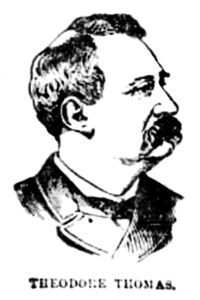
Conductor Theodore Thomas. [Image from the Rock Island (IL) Daily Argus, Aug. 5, 1893.]
The broadly scored and richly orchestrated overture, lasting approximately 13 minutes, comes from an early opera by Wagner, composed in 1838-40. The first third of the piece is so quiet that one wonders how anyone, even the invited guests sitting in the grandstand just in front of the orchestra, could have known the orchestra was even performing. That is, until the horns boldly enter four-and-a-half minutes into the work.
A reporter from the Chicago Inter Ocean thought the music choice of “Rienzi” seemed “strangely appropriate to the scene,” offering:
Here was a story told in music’s universal language, portraying that eternal revolt of the human spirit against tyranny, selfishness and corruption of which the Polish insurrection of 1831 and the revolution of July were the modern echoes. Rienzi, a tribune of the people, dreaming of the old austere republic, in the midst of corrupt, imperial Rome–a noble heart, a powerful will at war with a brutal and vulgar age–here was a subject full of imagery as of vat buildings and towers. What inflexions of feeling, what chastened exaltation in the music of “Rise, thou blessed sun, and bring with thee resplendent liberty.
The Exposition Orchestra repeated their performance of the piece during an afternoon concert on May 1, under the baton of conductor Adolph Leisegang.
Anniversary performance
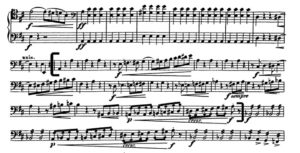
Excerpt of the “Rienzi” overture by Wagner.
Perhaps not by coincidence in this 125th anniversary year of the Columbian Exposition, the Chicago Symphony Orchestra will be performing Rienzi in concerts on December 6, 7, 8, and 11, 2018. The CSO describes the piece as depicting “a popular uprising against a tyrannical regime.”
To capture the feel of being at Opening Day in 1893, consider listening to this 1958 recording of the “Rienzi” overture performed by the Chicago Symphony Orchestra.
SOURCES
(See our note about sources here.)
“Concert by the Chicago Band” Chicago Daily Tribune May 2, 1893, p. 4.
“‘Gath’ of the Fair” Chicago Daily Tribune May 2, 1893, p. 9.
“Music Admirable and Effective” Chicago Daily Tribune May 2, 1893, p. 1.
“Our Day of Triumph” Chicago Inter Ocean May 2, 1893, p. 1.
“Viewed from Above” Chicago Daily Tribune May 2, 1893, p. 5.
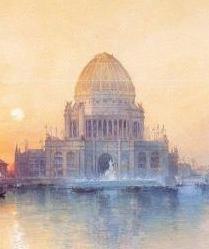
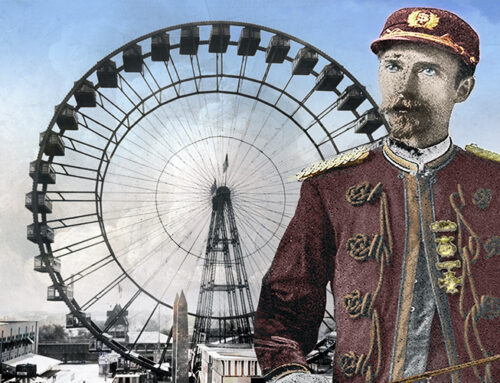
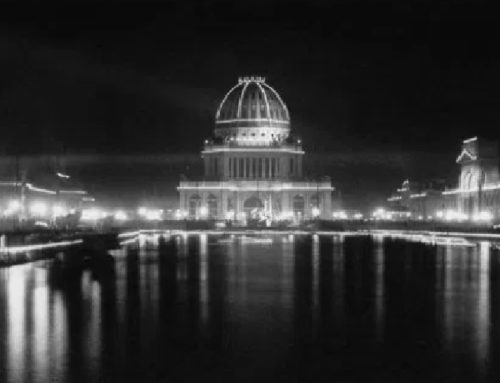
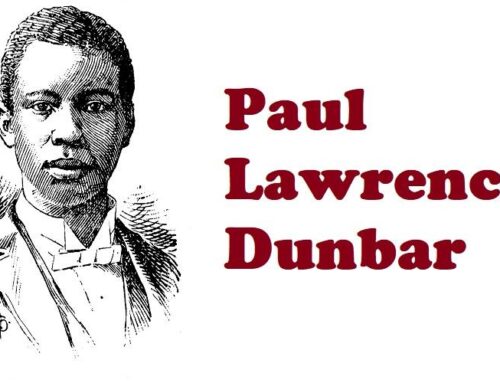

Leave A Comment